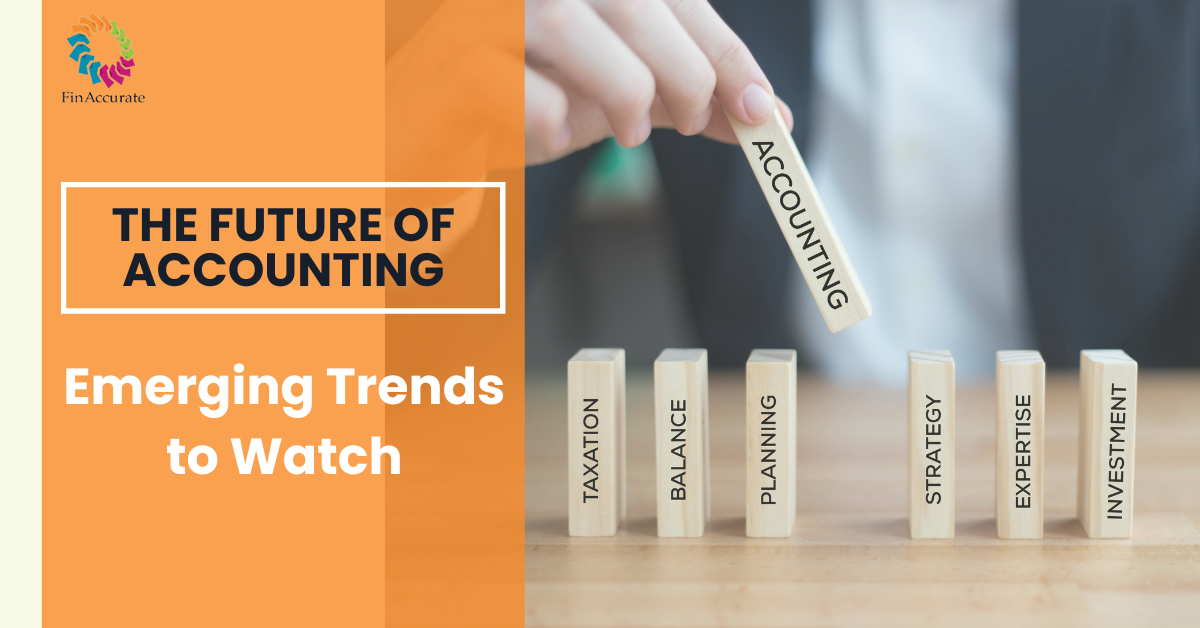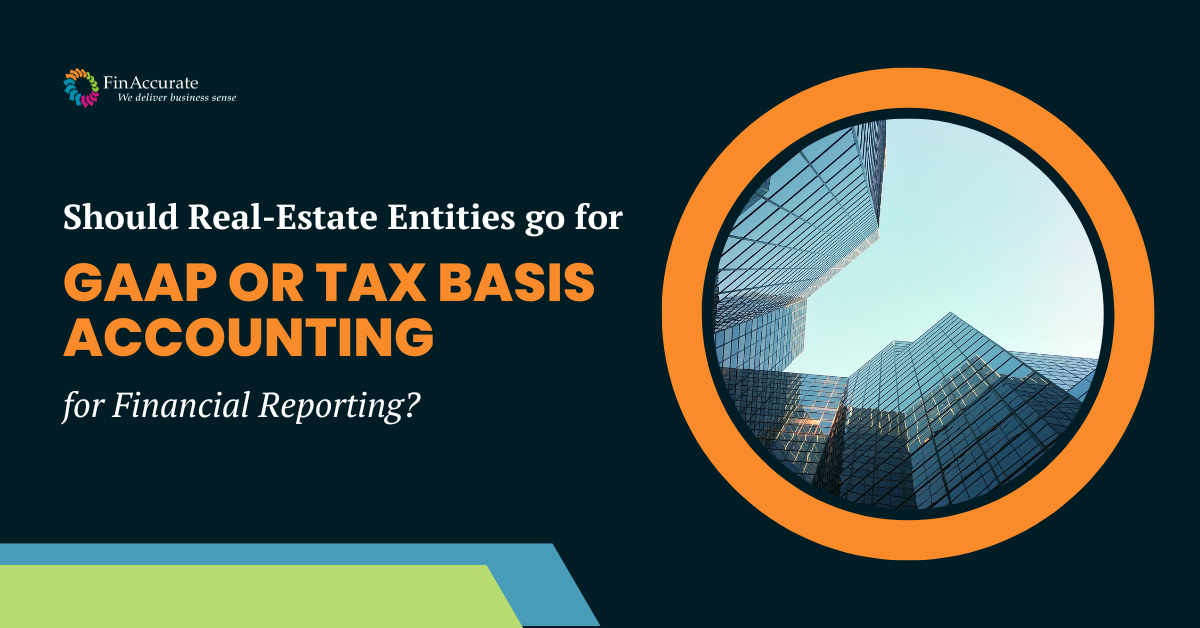Accounting trends are emerging practices and technologies driving the industry forward.
Advancing technology improves processes and systems for faster, more accurate reporting, while new regulations and standards are increasing compliance requirements and transparency.
Finaccurate is a financial tech company providing cutting-edge tools and solutions to streamline accounting, reduce costs, and improve accuracy. Our software helps businesses stay compliant and profitable.
We stay up-to-date with the latest accounting trends to help our clients succeed.
Automation and AI in Accounting
Automation and artificial intelligence (AI) have revolutionized the way accountants work and are transforming the accounting industry.
It make accounting processes faster, more efficient, and more accurate while freeing up accountants’ time to focus on more value-added, strategic tasks.
They are also allowing accountants to access, analyze, and interpret financial data in real-time, enabling them to make smarter, faster decisions.
Automation and Technology In Accounting
Some of the most interesting changes in the accounting field are the way technology is always getting better and the trend toward automating repetitive accounting tasks.
Some of the processes that are being automated are approval workflows, bank reconciliation, journal entries, inter-company consolidation, revenue recognition, lease accounting, and depreciation.
There are many accounting tasks that can be automated, but not enough people understand the technologies and there aren’t enough resources to put them in place.
But those who take the plunge are glad they did. About 70% of companies that have automated more than a quarter of their accounting tasks report a moderate or large return on investment (ROI).
AI in Accounting
Everyone in the business world agrees that AI will have a big effect on finance and accounting. Companies are using artificial intelligence (AI) and robotic process automation (RPA) to automate boring, repetitive tasks.
This lets accountants spend their time on more important and valuable tasks.
Accounting firm EY, for example, has used AI to analyze lease contracts so that it’s easier to quickly get information on the start date, amount to be paid, and options for ending or renewing the lease.
This lets the finance professional spend more time making decisions based on the data instead of looking for it.
Overall, automation and AI are transforming the accounting industry, making it more efficient and accurate.
Automation and AI allow accountants to focus on more value-added tasks and provide faster, more accurate insights to their clients.
As technology continues to evolve and become more sophisticated, it is expected that automation and AI will continue to revolutionize the accounting industry.
Examples of companies successfully implementing automation and AI in accounting practices include Xero, FreshBooks, QuickBooks, and Sage.
- Xero: Xero is a cloud-based accounting software that uses automation and AI to streamline financial processes. It offers features such as bank statement automation, invoice automation, expense management, and automatic payment reminders.
- Sage Intacct: Sage Intacct is an accounting software that uses AI and automation to improve accuracy and efficiency. It supports automated invoicing, accounts receivable and accounts payable automation, and data integration with other systems.
- QuickBooks Online: QuickBooks Online is a cloud-based accounting solution that uses AI and automation to simplify financial processes. It offers features such as automated invoice creation, payment reminders, and automatic bank feeds.
- FreshBooks: FreshBooks is a cloud-based accounting software that uses automation and AI to streamline financial processes. It offers features such as automatic invoicing, automated payment reminders, expense tracking, and data integration.
Blockchain Technology in Accounting
Blockchain is an accounting technology. It deals with changing who owns an asset and keeping a record of accurate financial information in a ledger.
In a broad sense, accounting is about measuring and sharing financial information and figuring out what that information means.
A big part of the job is figuring out who has what rights and responsibilities over property or planning how to use money in the best way.
Using blockchain gives accountants certainty about who owns assets and whether agreements exist. This could make them much more efficient.
Benefits of Blockchain Technology in Accounting And How it is Improving the Industry
Blockchain technology is revolutionizing the accounting profession by streamlining and automating the cumbersome processes of maintaining and reconciling ledgers.
Blockchain provides absolute certainty over the ownership and history of assets, allowing for greater clarity over the available resources and obligations of organizations, and freeing up resources to concentrate on more value-adding tasks.
Beyond streamlining the reconciliation process, blockchain technology is expanding the scope of accounting.
By providing a secure and reliable platform for maintaining records, blockchain enables the measurement of previously intangible assets such as data.
This opens up new opportunities for accountants to provide more accurate and timely financial forecasting.
Finally, blockchain technology is making due diligence in mergers and acquisitions faster and more reliable.
With a distributed consensus over key figures, accountants can spend more time examining judgemental areas and providing strategic advice.
Examples of companies that are successfully implementing blockchain technology in their accounting practices
- IBM: IBM is using blockchain to help automate the reconciliation and auditing of financial data. This helps to ensure accuracy, reduce costs, and improve the speed and efficiency of financial processes.
- Deloitte: Deloitte is developing a blockchain-based platform to simplify and streamline the processing of financial transactions. This is expected to reduce costs and improve the accuracy and efficiency of financial operations.
- Microsoft: Microsoft is using blockchain to build an immutable ledger system to track and record financial transactions. This helps to improve the accuracy and security of financial records, while also reducing costs and time associated with financial operations.
- KPMG: KPMG is developing a blockchain-based platform to help simplify and streamline the auditing process for financial transactions. This is expected to reduce costs and time associated with financial auditing.
Data Analytics and Business Intelligence in Accounting
Data analytics and business intelligence are revolutionizing the way accounting and auditing professionals approach their tasks.
With the ever-increasing amounts of data available, these technologies are enabling accountants and auditors to improve the accuracy and efficiency of their work.
Through analytics, accountants and auditors are able to quickly and accurately identify patterns and trends in financial data, enabling them to make more informed decisions.
Business intelligence systems offer insight into the performance of businesses, allowing accountants and auditors to make more informed decisions regarding the risk of financial irregularities.
By leveraging data analytics and business intelligence, accounting and auditing professionals can gain a comprehensive understanding of their client’s financial data, which is essential to providing accurate and reliable financial statements.
Tools are Being Used to Improve Decision-Making and Increase Efficiency
These tools are being used to improve decision-making and increase efficiency by providing more accurate and up-to-date data.
With the help of predictive analytics and data mining, businesses can gain greater insights into their customers and make more informed decisions.
Additionally, Machine Learning and Artificial Intelligence can automate many of the manual processes that used to take up a lot of time and resources.
This automation enables businesses to work smarter and faster, enabling them to be more efficient with their resources and make decisions faster and more accurately.
Examples of companies that are successfully using data analytics and business intelligence in their accounting practices
The Role of the Accountant in the Future
Accountants play a vital role in the future of business and finance. As the economy continues to evolve, the need for accurate financial data and analysis grows ever more important.
Accountants are the professionals who are responsible for keeping track of the financial records of companies and individuals and providing valuable insights that can help guide decision-making.
As technology advances and new trends emerge, the role of the accountant is changing and adapting to the needs of the times.
How these emerging trends are affecting the role of the accountant
The emergence of Artificial Intelligence (AI) technology has revolutionized the accounting industry, allowing for complex accounting tasks such as compiling transactions into financial statements and tax returns to be automated.
According to Gartner, this automation through AI and robotic processes can save up to 25,000 hours of rework annually, freeing up time for other important tasks such as forecasting, analysis, and increasing engagement.
Though AI technology is taking over some tedious and heavy accounting tasks, it does not mean that the roles of accounting professionals have become obsolete.
In fact, it presents an opportunity for them to step into a more strategic role, such as helping businesses adopt and implement AI and other emerging trends in accounting.
Additionally, while automated tasks such as payroll and tax form preparation may be done by AI, they still need to be cross-checked by humans.
Accounting professionals should thus view the new trends in accounting as a way to become more efficient in their work.
By tapping into these trends, they can save time to focus on more strategic tasks like financial planning and risk management.
Accountants Can Adapt to These Changes And Thrive in the Future
Accountants can adapt to the changing environment by developing new skills and focusing on areas of technology and data analysis.
This includes learning coding languages, utilizing data analytics software, and developing a deep understanding of blockchain and distributed ledger technology.
Accountants must also become comfortable with the use and management of cloud-based technologies.
Examples of skills that accountants should focus on to stay relevant in the field
This can include skills such as understanding data analytics, mastering various software programs, and learning how to use cloud-based applications.
Accountants should also focus on developing strong communication and problem-solving skills. Additionally, they can stay current on accounting regulations and taxation laws.
By developing these new skills, accountants can remain competitive and successful in the ever-evolving business world.
Conclusion
In conclusion, the future of accounting is filled with exciting and innovative changes that can help professionals stay ahead of the curve and remain competitive in the ever-evolving business environment.
The emergence of new technologies and solutions, such as cloud computing, automation, and artificial intelligence, are transforming the way we do accounting.
It is up to accounting professionals to stay informed of the latest trends and to use them to their advantage.
Finaccurate encourages accounting professionals to stay up-to-date on the latest technologies and trends in order to remain competitive and make the best use of their time and resources.
JAY’s Choice:-
- Bookkeepers for small business
- 3 Ways to grow your bookkeeping business
- What are the challenges of the Budget session and solutions to improve it?
- How to identify and avoid problems in Bookkeeping
- 10 Types of Cloud-Based Accounting Services
- 10 Benefits of Outsourced Bookkeeping
- How to hire a top bookkeeper: a comprehensive guide
- 5-Ways Hiring A Bookkeeper Can Make Your Business More Profitable
- Bookkeeping For Non-profits
- Accounting Year-End Checklist for Your Small Business

















